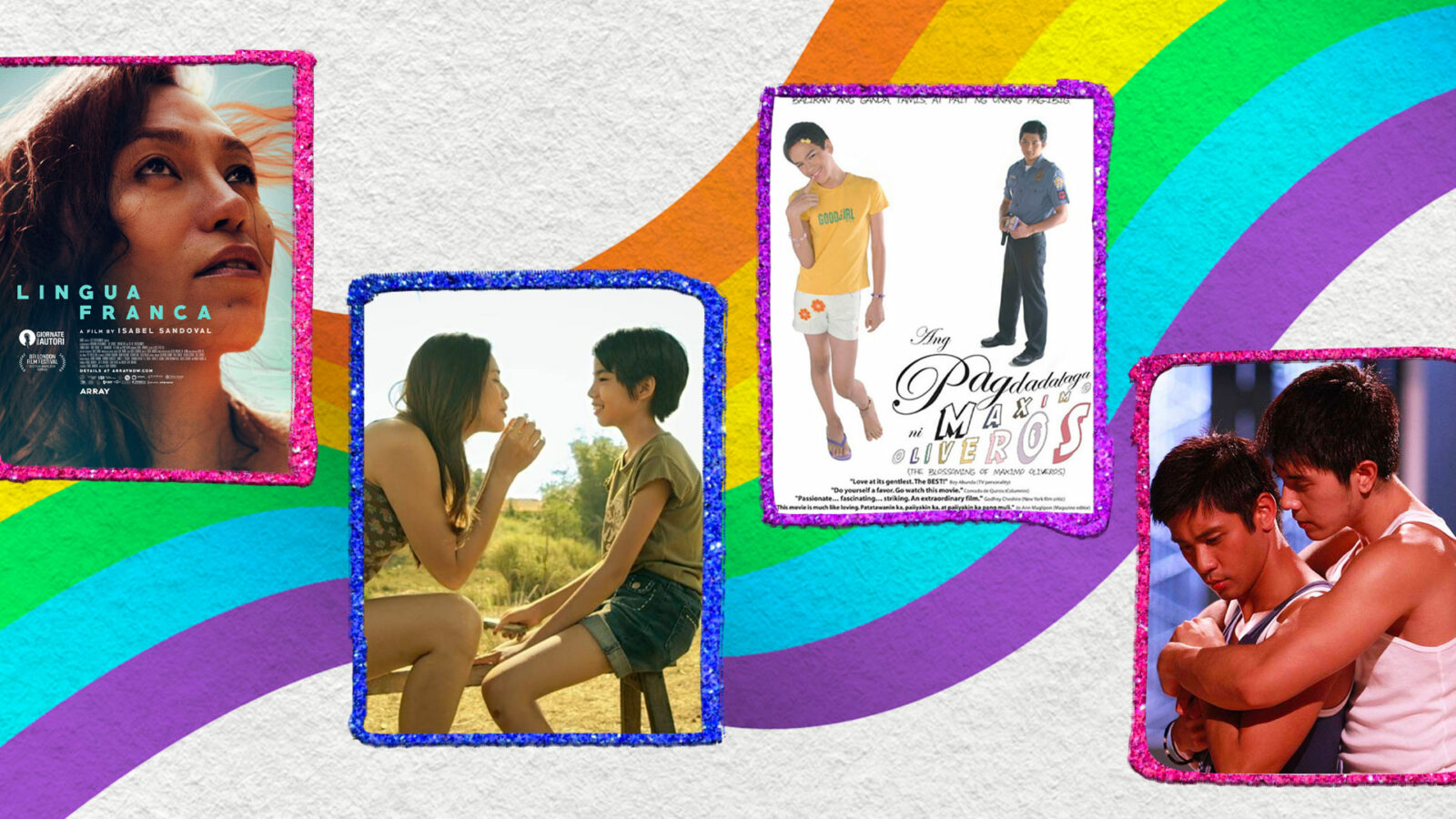From a groundbreaking movie about young love to the first local cinematic effort about intersex, here are the critically acclaimed Filipino queer films that you should experience next.
Over the years, we have seen the colorful evolution of Philippine cinema as it continues to push forward and hero stories that need to be seen and heard. While a lot more has to be done, it has been refreshing to witness rich and diverse narratives from the LGBTQIA+ community brought to life by Filipino filmmakers from across the archipelago using a variety of styles and sensibilities in foregrounding urgent and powerful advocacies. Serving eye-opening and perspective-shifting experiences that also tickle the heart, below are some of the groundbreaking Filipino queer films that have captivated audiences from around the world.
Related: 13 Female-Directed Filipino Movies To Watch This Women’s Month
ANG PAGDADALAGA NI Maximo Oliveros
An era-defining piece, Auraeus Solito’s directorial debut, Ang Pagdadalaga ni Maximo Olivers, is an endearing coming-of-age film that follows Maxi (Nathan Lopez), a boy on the cusp of teenagehood, as he revels in his puppy love towards police officer Victor (JR Valentin).
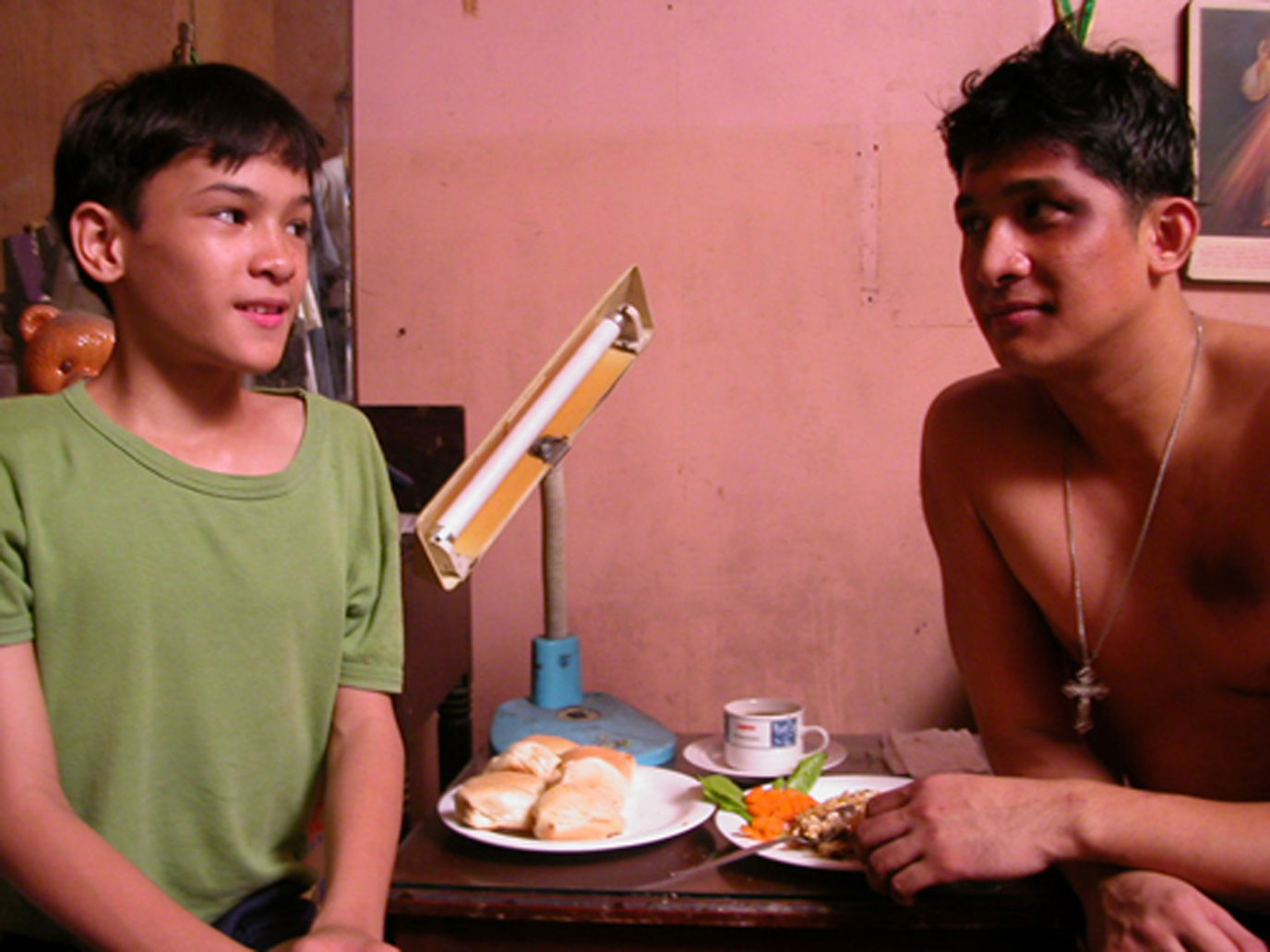
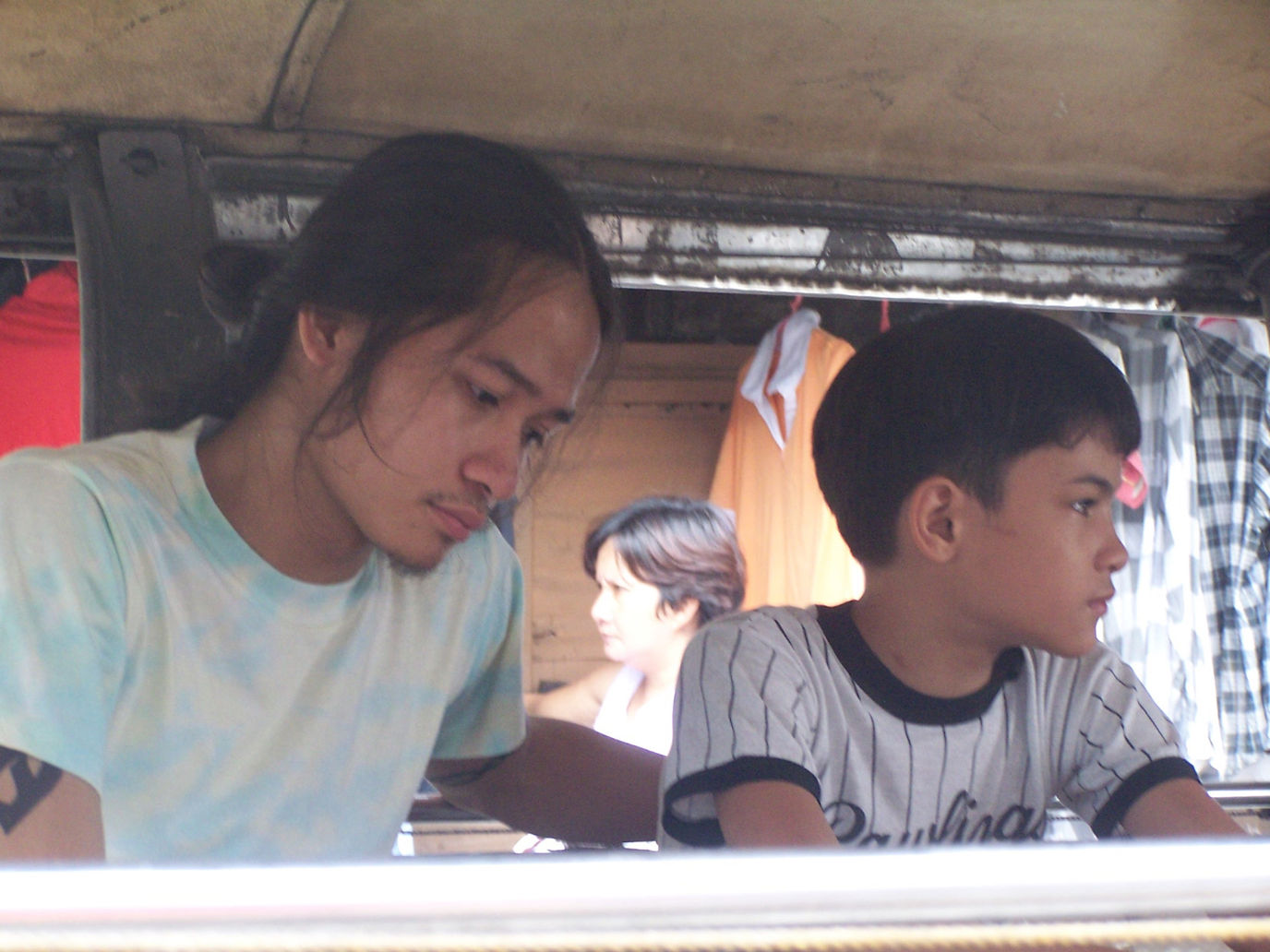
With screenplay by Michiko Yamamoto, Maximo’s refreshing portrayal of embracing one’s gender identity, familial acceptance, platonic affection, and Lopez’s buoyant performance has charmed audiences from numerous high-profile film festivals, winning prestigious accolades (including Berlinale’s Teddy Award and IFFR’s NETPAC Award), and being included in lists of best LGBTQIA+ movies of all time.
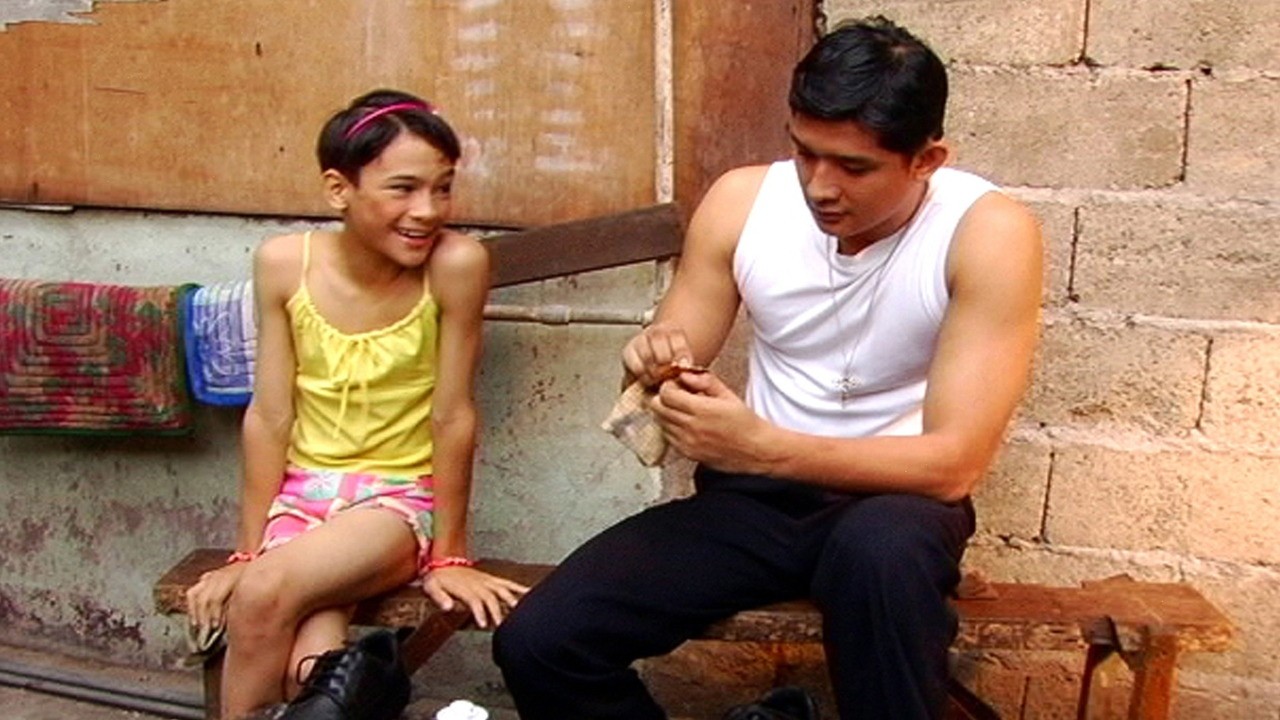
The New York Times hails Maximo‘s “refreshingly blasé handling of homosexuality,” its “amiable actors” and above all, credits Lopez’s “effortless charisma” as the the film’s strongest elements. Maximo premiered in the first-ever Cinemalaya Independent Film Festival and was the first Filipino film to compete in Sundance. In 2010, Gawad Urian distinguished Maximo as one of the best films of the decade.
Ang Huling Cha-Cha ni Anita
Another tale of young love, Sigrid Andrea Bernardo’s Ang Huling Cha-Cha ni Anita chronicles the pubescent life and sexual confusion of the 12-year-old Anita (Teri Malvar) as she falls head over heels in love with Pilar (Angel Aquino), a gorgeous new woman in town. A strong debut by writer-director Bernardo (also known for Kita Kita), Cha-Cha shines primarily because of the chemistry and impeccable performances from Malvar and Aquino and its sweet and sunny rendering of pre-adolescent lesbian passion.
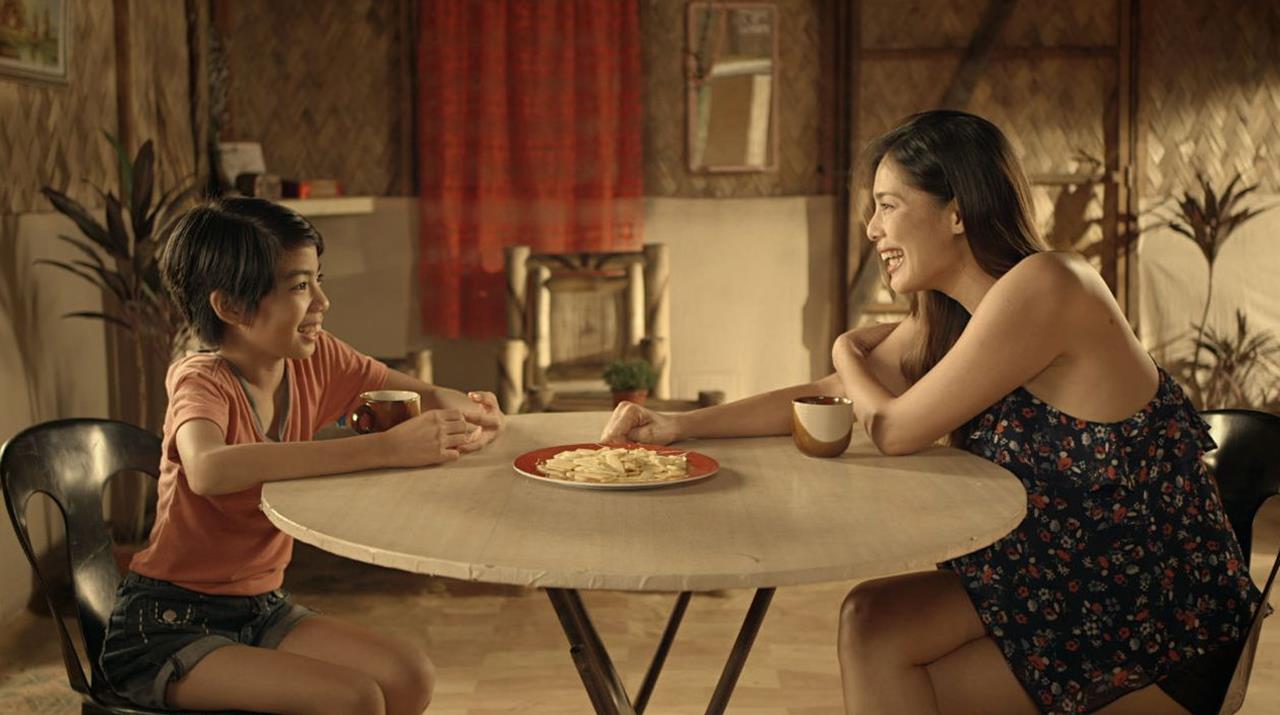
After an award sweep at the 2013 CineFilipino Film Festival, including the performances accolades and best picture prize, Ang Huling Cha-Cha ni Anita would later tour the world and get recognized at Osaka Asian Film Festival and Milan International Lesbian and Gay Film Festival, among others. Aquino also took home the 2014 Gawad Urian best supporting actress trophy.
ANG Sayaw Ng Dalawang Kaliwang Paa
Dance, poetry, and desire collide in Alvin Yapan’s Ang Sayaw ng Dalawang Kaliwang Paa. It follows Marlon (Paulo Avelino), a college student who’s infatuated with his older professor and dance teacher Karen (Jean Garcia). In order to impress her, he taps his classmate (Dennis) to be his dance tutor and through some graceful fashion, an unconventional love triangle arises.


Exploring the “intersection and divergence between feminist and gay concerns” through the third world lens, Sayaw captivated Filipinos with its poetic and kinetic allure when it premiered in Cinemalaya in 2011. It went on to bag seven Gawad Urian awards, nabbing the best actor (for Avelino), best supporting actress (for Garcia), best direction, and best film prizes. In 2021, the Manunuri ng Pelikulang Pilipino honored Sayaw as one of the best films of the decade, the only Filipino queer movie on the list.
Metamorphosis
J.E. Tiglao’s first feature project Metamorphosis is a landmark in Philippine cinema as it’s the first local film that spotlights intersex representation. Adam, an intersex who was raised like a normal boy by his conservative family, has their life upended after their first menstrual period. This thrusts them into a new exploration of their sexual identity and a painful transformation riddled with ambiguities.

While it was initially given an X-rating by the Movie and Television Review and Classification Board (MTRCB), Metamorphosis was able to premiere in and dominate the 2019 Cinema One Originals Film Festival, winning five honors that include best direction for Tiglao. International film criticism outfit Little White Lies describes Tiglao’s de-stigmatization of intersex identity as a “quiet defiance” that reminds us of how the intersex body “can be a source of joy and possibility.”
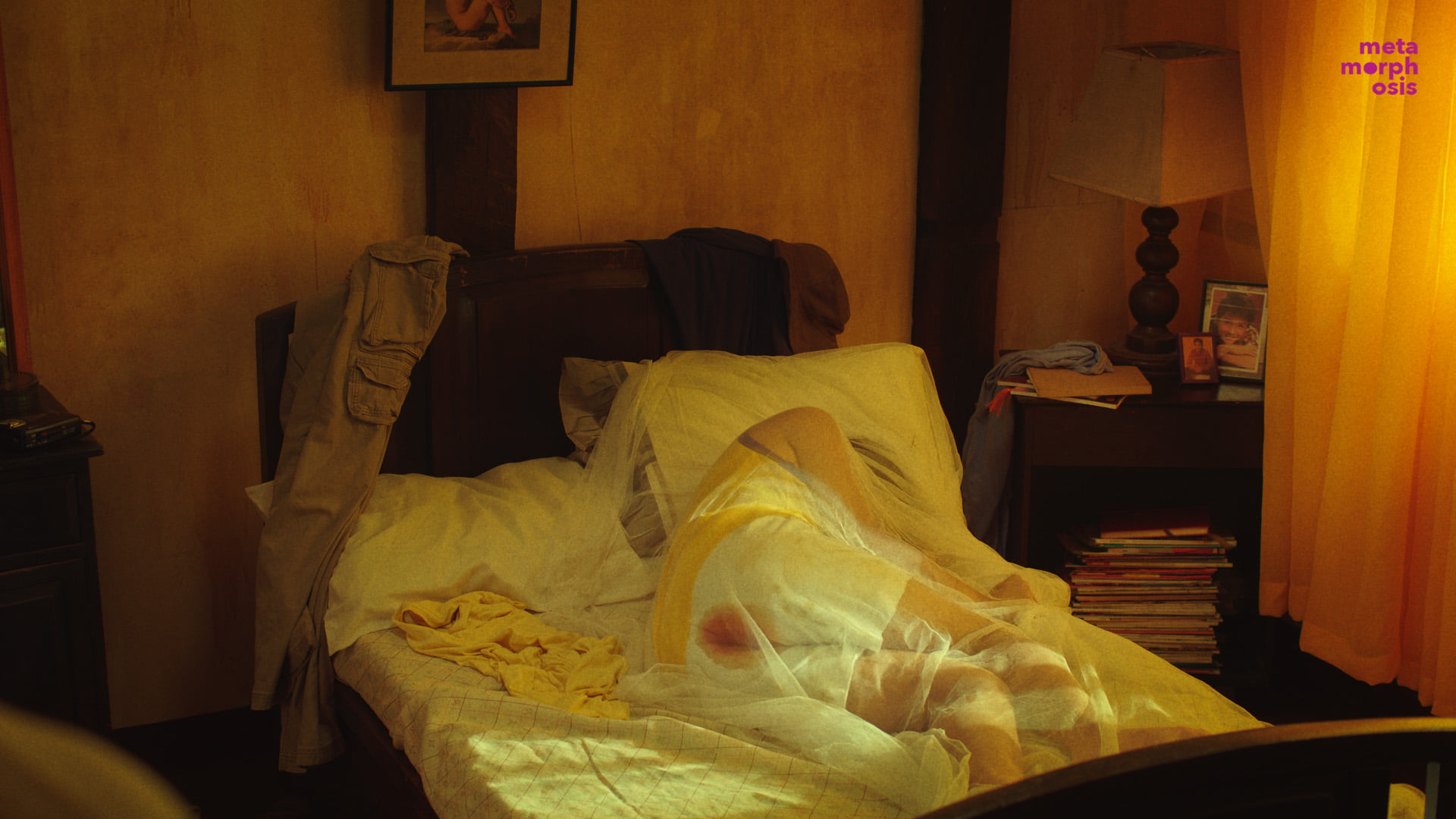
Metamorphosis would later widen its pioneering impact as it screened in some of the biggest LGBTQIA+ film fests in the world including, among others, New York’s NewFest, UK’s Queer East, Russia’s Side by Side (where it won best film) and San Francisco’s Frameline, the latter of which is the longest running film fest of its kind in the world.
Lingua Franca
New York-based Filipina filmmaker Isabel Sandoval writes, directs, produces, edits and stars in another trailblazing cinematic effort, Lingua Franca. Sandoval plays Olivia, an undocumented Filipino transwoman caregiver, who’s struggling to attain legal status in the United States. Set in the backdrop of then U.S. president Donald Trump’s anti-immigrant rhetoric, Lingua Franca finds Olivia amid the threat of deportation and in a complicated romantic connection with a lover who’s unaware of her true identity.
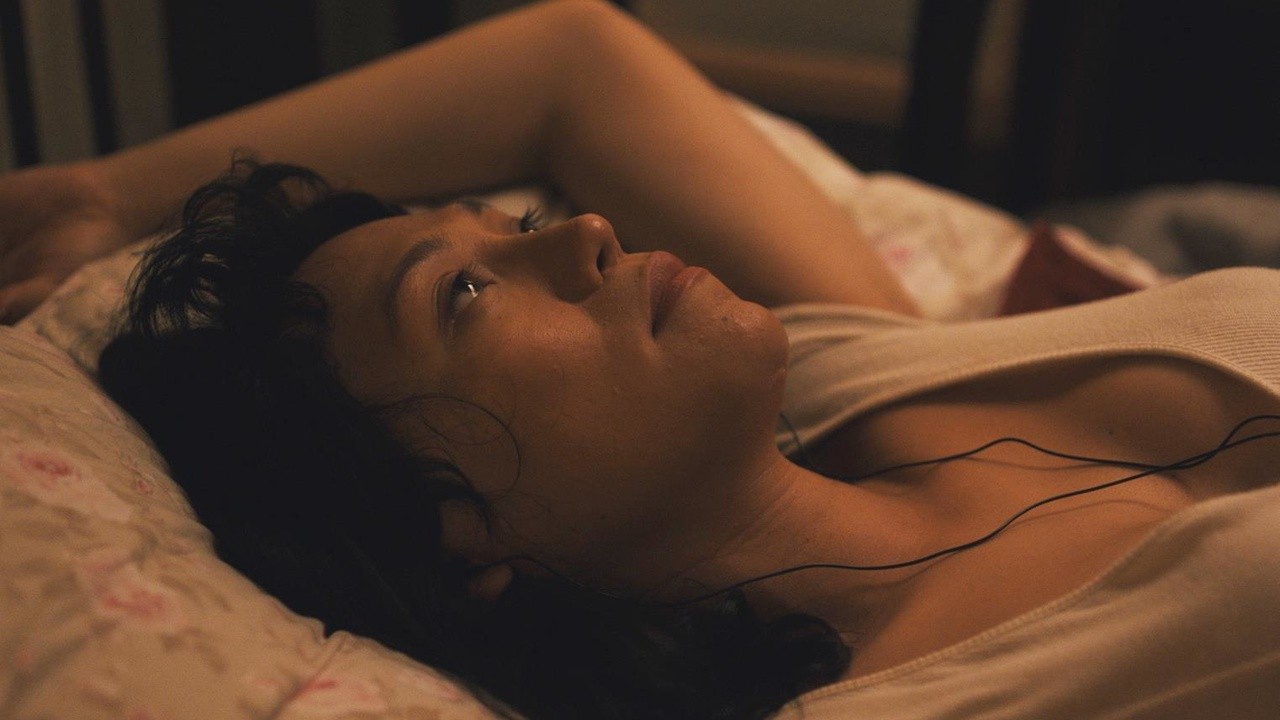
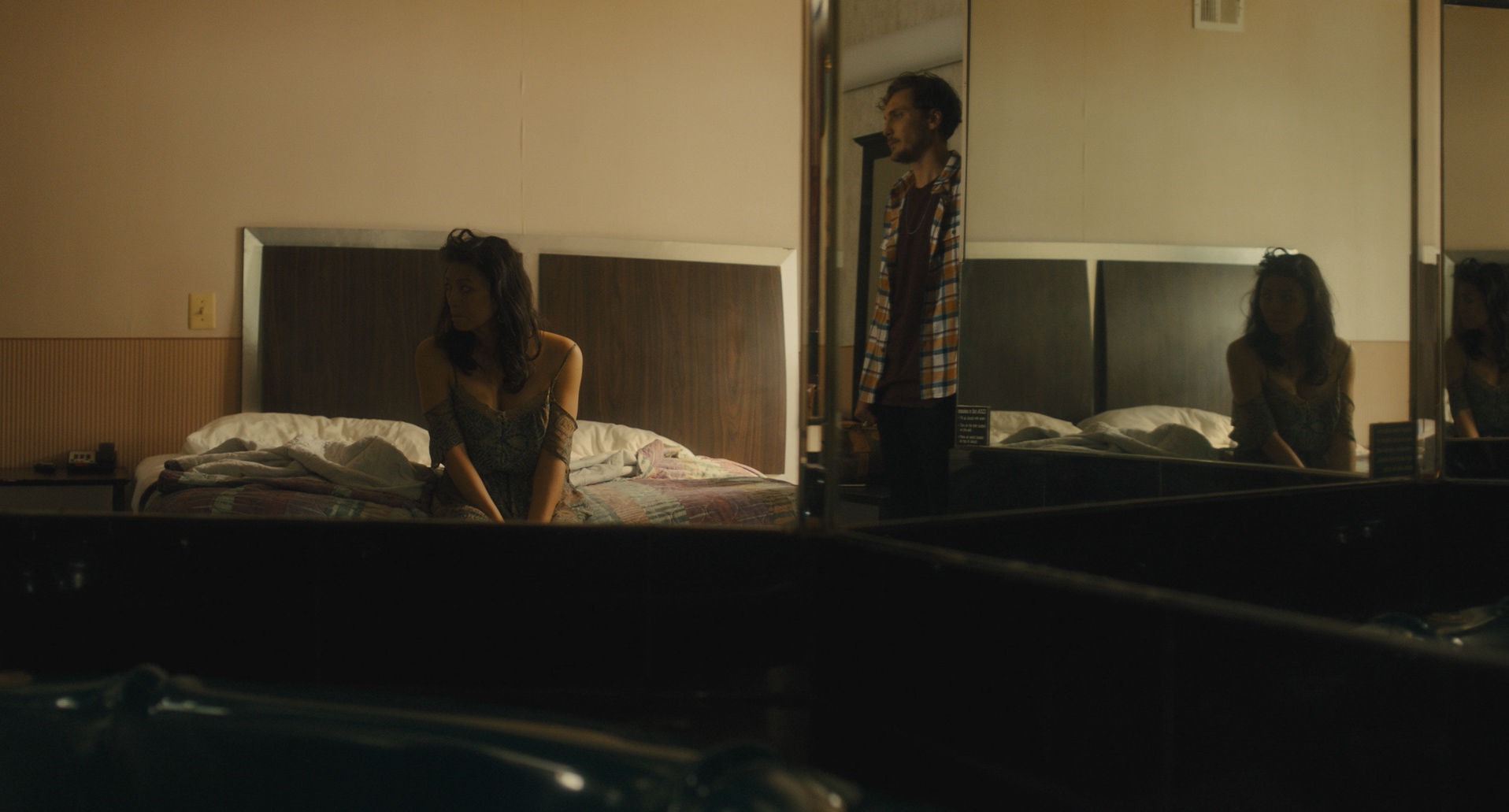
In 2019, Lingua Franca premiered at the Venice Film Festival and became the first movie by a transwoman director to be selected at the oldest film fest in the world. With its resonant advocacies on trans rights, immigrants’ welfare, and marginalized storytellers, Lingua Franca would then become a regular title in the festival circuit across the globe, showing in India, South Korea, Greece, Sweden, Denmark, Germany, Canada, United Kingdom, and the U.S. to name a few.
Die Beautiful
The magic of the 2016 dramedy Die Beautiful lies on the masterful, nonlinear storytelling of prolific Filipino director Jun Robles Lana, foregrounding a complex narrative about the transgender experience that is at once humorous, heartening, and heartbreaking.
When Trisha (played to perfection by Paolo Ballesteros), a beauty pageant veteran, suddenly dies, her friends go against all odds (a conservative, toxic, and homophobic father included) to honor her idiosyncratic wish. In the process, the audience gets to look back at the adversities and triumphs Trisha has had to face as a transwoman, a mother, a friend, a wife, and ultimately, a queen.
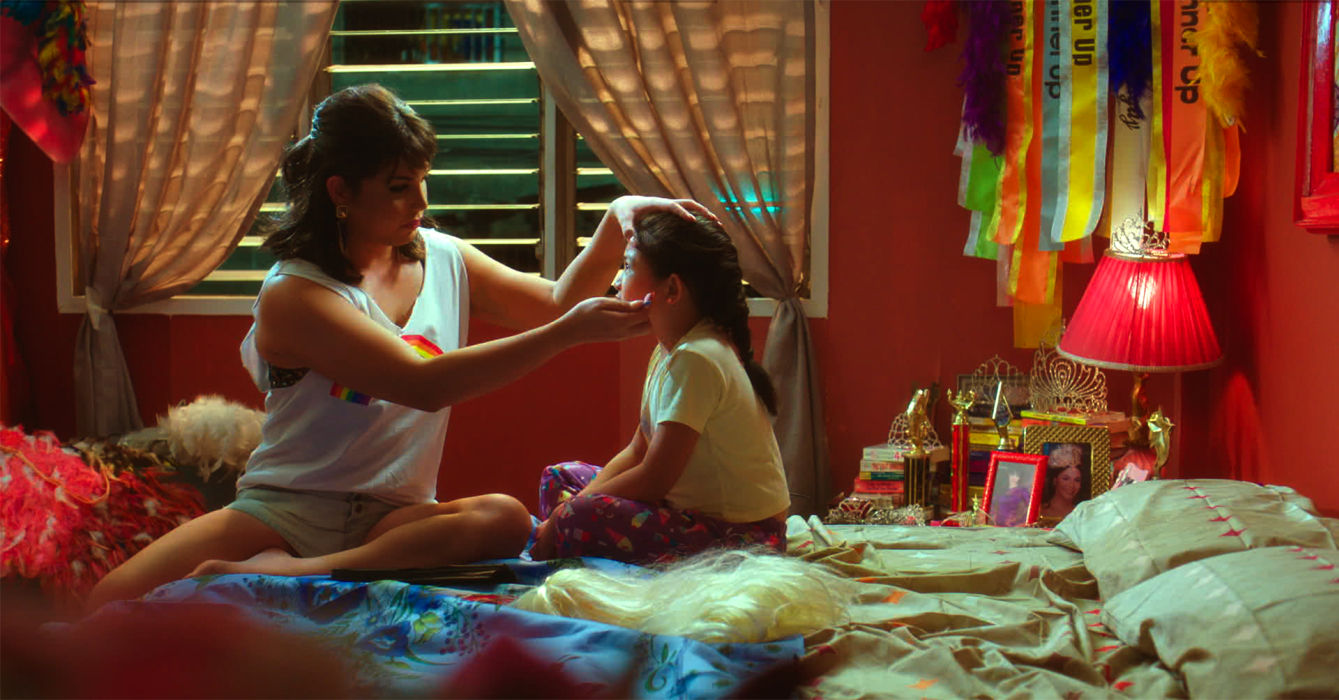

Die Beautiful became the highest grossing movie at the reformed 2016 edition of the Metro Manila Film Festival (MMFF), where it also bagged acting prizes for Ballesteros and Christian Bables. The Die Beautiful duo would later on triumph at the 2017 Gawad Urian awards. And before that, Die Beautiful first made a splash at the prestigious Tokyo International Film Festival where Ballesteros wowed the crowd dressed as Angelina Jolie and took home the coveted best actor trophy and audience choice award for the film.
Zombadings 1: Patayin Sa Shokot Si Remington
A Filipino zombie movie that doubles as a pointed critique of homophobia, Jade Castro’s Zombadings 1: Patayin Sa Shokot si Remington has secured its iconic status in the Philippine film canon ever since its highly successful premiere in 2011. With some of the biggest names in the industry (Roderick Paulate, Eugene Domingo, Janice de Belen, and Marian Rivera to name a few), Zombadings follows Remington (revelatory Martin Escudero) whose life gets turned upside down, in the campiest way possible, after being cursed to turn gay.
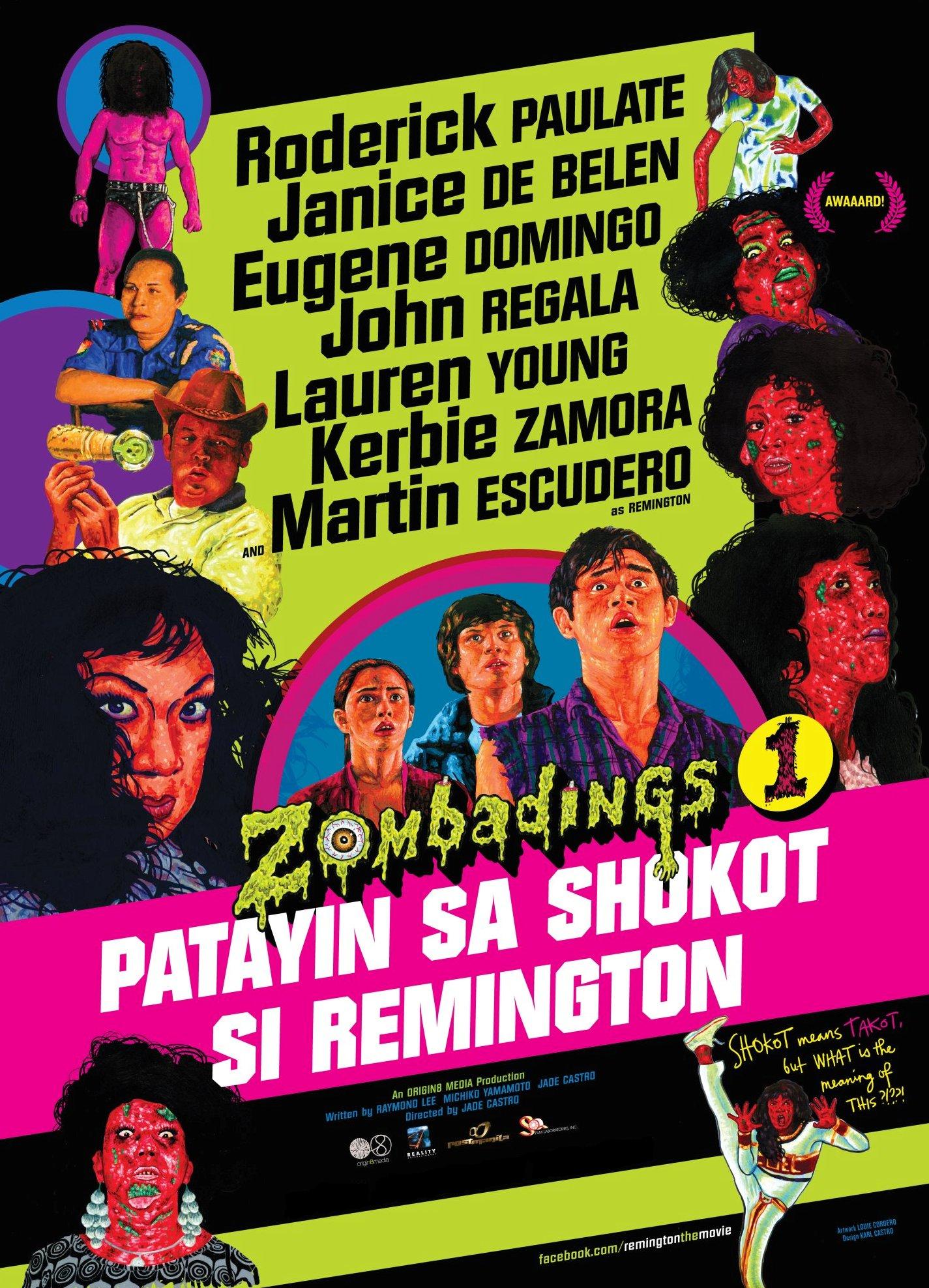
When we say camp, we mean gay zombies, a gaydar-wielding psycho gay killer, Roderick Paulate as the curse giver, some closing-credits disco dancing, and male go-go dancer ghosts. Zombadings started out as a colorful indie offering that eventually attained international acclaim because of its genre-bending, sociopolitical fare. Variety describes it as “brisk and colorful” and highlights Escudero’s “delightful farcical facility.” Meanwhile, The New York Times notes Zombadings’ “queer-eye-for-the-undead-guy exuberance and warmth of spirit” as something “irresistible.” And yes, we’re still waiting for that long-overdue part two.
Miss Bulalacao
Another Filipino queer movie that pushes the boundaries of local storytelling and that deserves to be seen is Miss Bulalacao, written and directed by Cebuana filmmaker, musician, and activist Ara Chawdhury. It’s about Dodong (Russ Ligtas), a young drag queen who joins a barangay beauty pageant to gain his father and community’s acceptance. When it proves to be futile, what follows is the strangest night in Dodong’s life as he gets abducted by aliens and, well, gets pregnant.
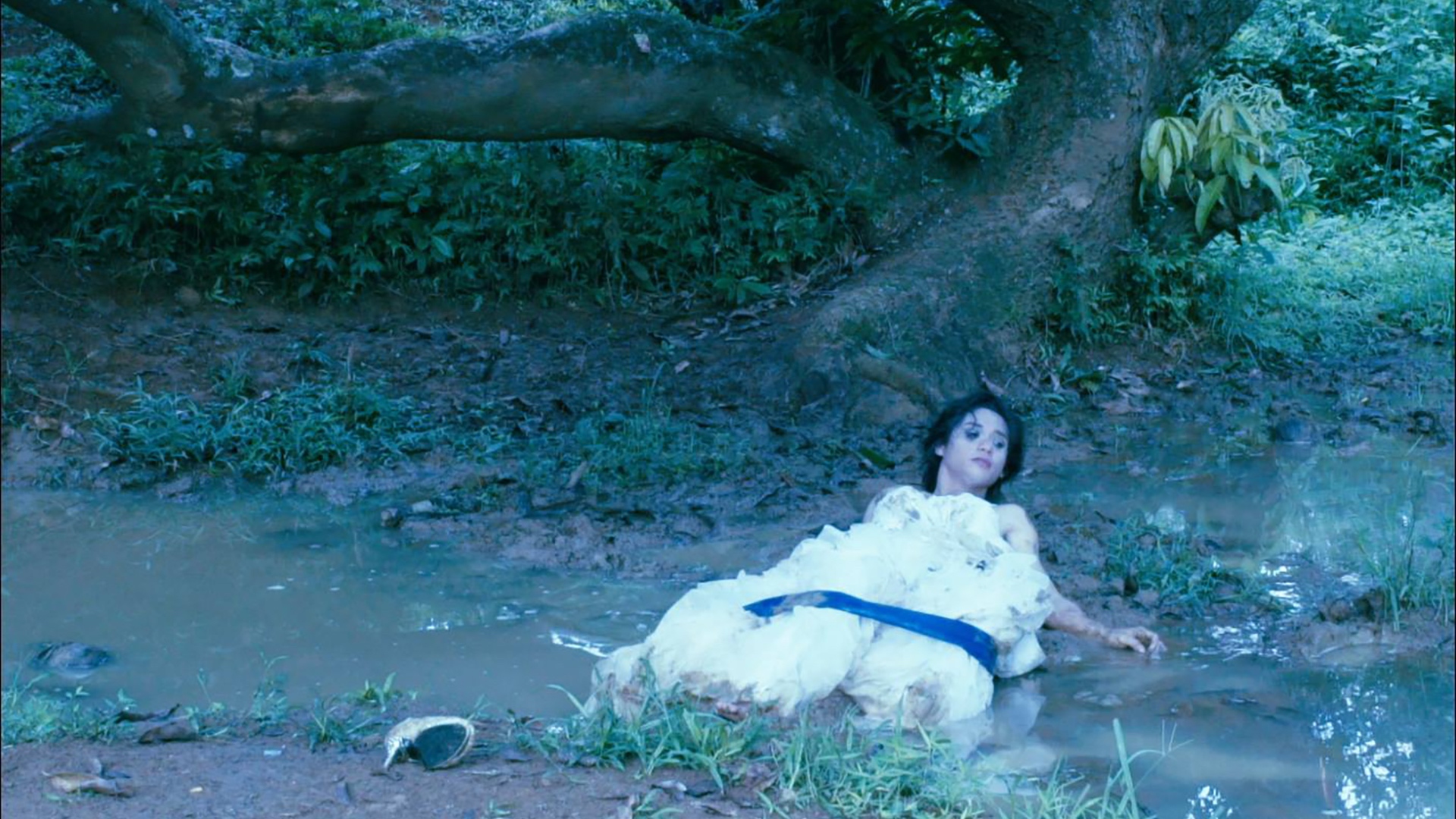
Apart from its wildly irreverent premise that’s sure to pique your interest, Miss Bulalacao has also celebrated critical success in the local and international scene. In its premiere in 2015 at the Cinema One Originals Film Festival, it won best screenplay and best supporting actress award for Chawdhury’s fellow Bisdak creative and Nocebo star Chai Fonacier. Miss Bulalacao also traveled far and wide in the festival circuit having screened in South Korea, South Africa, Thailand, India, United Kingdom, and the United States.
MAMU: AND A MOTHER TOO
You might know Rod Singh as the creator of the successful Pinoy drag show Drag Den but ICYDK, she was also at the helm of the critically acclaimed queer indie movie, Mamu: And a Mother Too. Following the colorful life of a transwoman sex worker who unexpectedly assumes the role of a mother to her orphaned transgender niece all while grappling with her career and romantic woes, Mamu is an honest, gritty, and defiant representation of trans narratives. In 2018, the film made history at the Cinema One Originals Film Festival as Iyah Mina, the actress-comedienne who played Mamu, became the first-ever Filipino transwoman to ever receive a best actress award in the history of Philippine cinema.
BILLIE AND EMMA
Throughout the years, Samantha Lee has been consistently satiating some sapphic hearts with her work that hurts and mends hearts simultaneously. One of them is Billie & Emma, a dreamy drama about first love, teenage woes, and the tough, complicated journey toward coming out of one’s shell.
For its “tender depiction of the coming-of-age of two high school girls made special and then brought together by their boundless capacity to love,” Billie & Emma won the Gender Sensitivity Award at the 2018 QCinema International Film Festival. It also screened in major LGBTQIA+ film festivals including Frameline, Los Angeles’ Outfest, and Toronto’s Inside Out.
BWAKAW
Finally, one of the Filipino queer movies that deserve a top spot in your watchlist is Jun Robles Lana’s dramedy Bwakaw. It’s about a grumpy old retiree named Rene, who has come out in his 70s and is living an isolated life with only his faithful dog Bwakaw for company. Already preparing for the day of his death, Rene gets a final shot at happiness when a chance encounter happens. A story about growing old, fearing loneliness, and coming to terms with one’s sexuality, Bwakaw is ultimately buoyed by an awe-inspiring central performance from one of the institutions of Philippine cinema, the late Eddie Garcia.

This indie gem scored the audience’s choice and best actor prizes at the 2012 Cinemalaya and was the country’s representative at the 85th Academy Awards. Bwakaw also traveled around the globe, showing in New York, Toronto, Hong Kong, Hawaii, and winning prizes at the Tokyo International Film Festival, the Asian Film Awards, and the 55th Asia Pacific Film Festival, where Garcia’s performance was hailed once more.
Continue Reading: 11 Filipino Shows You Should Binge Next On Netflix
